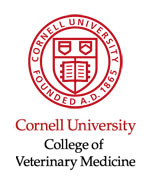"Complementarity Between Community-Based Animal
Health Delivery Systems and Community-Based Wildlife Management?
An Analysis of Experiences Linking Animal Health to Conflict
Management in Pastoralist Areas of the Horn of Africa"
Tim Leyland and Richard Grahn
Community-based animal health delivery systems have been
developing since the early 1980s across all continents. They
are now accepted as viable mechanisms for bringing services
to remote, marginalised and under-served livestock-keeping
communities. In recent years there has been a concerted drive
in the pastoralist areas of the Horn of Africa to make these
systems sustainable through privatisation, supported by enabling
policies and legislation. This process has forced advocates
for these delivery systems to confront core non-animal health
problems, such as access to markets, political marginalisation
of pastoralist communities and conflict. This paper briefly
describes how successful community-based animal health delivery
systems function. It gives examples of the positive impact
these projects have had on the livelihoods of livestock owners.
They have also proven vital in gaining the confidence of
pastoralists and assisting the pastoralists themselves to
manage local conflicts such as livestock raiding. The authors
note that whilst much progress has been made at the community
level in conflict management, sustainable peace and improved
economic outcomes requires policy and legislative change
by responsible governments, based on a fuller understanding
of pastoralist problems. This understanding will have to
come from pastoralist communities themselves through their
attainment of a voice and ability to advocate for improvements.
During the course of animal health-linked conflict management
work in pastoralist areas, the weak management of wildlife
resources has emerged as a community concern. Opinion leaders
in pastoralist communities are advocating increased efforts
from communities and other stakeholders to address the massive
wildlife depletion that has taken place in pastoralist areas
of the Horn of Africa over the past 30 years, primarily through
game meat off-take. Some of the local leaders’ suggestions
are presented. The authors note that pastoralists are more
likely to address issues of wildlife and habitat destruction
once their more crucial livelihoods problems (particularly
animal health and conflict) are being solved.
Given the geographical closeness of wildlife and pastoralist
grazing lands in the Horn of Africa, the paper examines community
involvement in wildlife conservation and management around
protected areas. It asks whether some of the lessons learned
from community animal health programmes and their links with
conflict prevention could be utilised to improve wildlife
conservation and management in pastoralist communities. The
authors conclude that there is an opportunity to add value
to community-based wildlife management schemes by linking
them with community-based animal health initiatives. Such
linkages require more dialogue and collaboration between
conservationists, veterinary practitioners and pastoralists.
|
|











